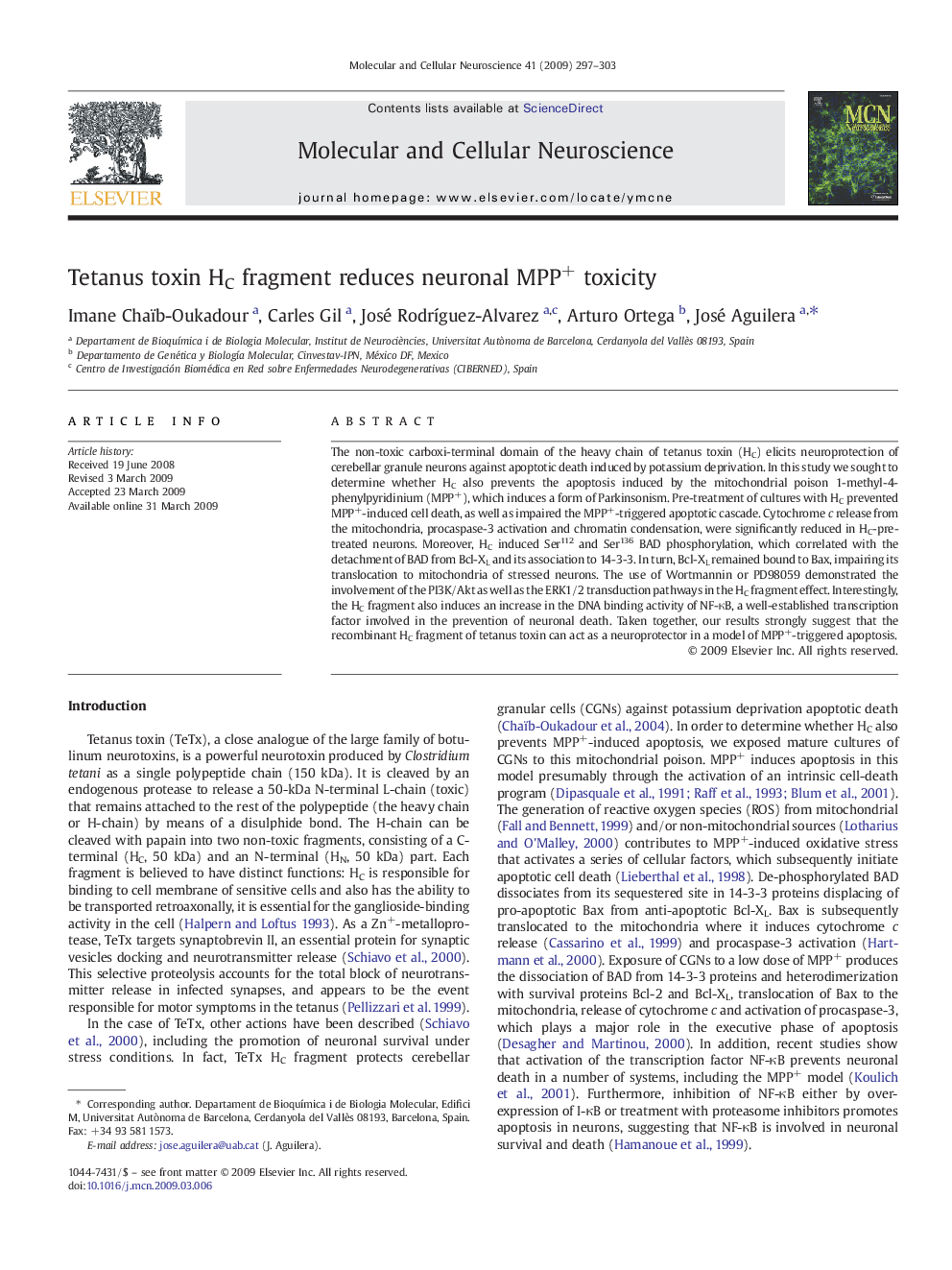| Article ID | Journal | Published Year | Pages | File Type |
|---|---|---|---|---|
| 2198937 | Molecular and Cellular Neuroscience | 2009 | 7 Pages |
The non-toxic carboxi-terminal domain of the heavy chain of tetanus toxin (HC) elicits neuroprotection of cerebellar granule neurons against apoptotic death induced by potassium deprivation. In this study we sought to determine whether HC also prevents the apoptosis induced by the mitochondrial poison 1-methyl-4-phenylpyridinium (MPP+), which induces a form of Parkinsonism. Pre-treatment of cultures with HC prevented MPP+-induced cell death, as well as impaired the MPP+-triggered apoptotic cascade. Cytochrome c release from the mitochondria, procaspase-3 activation and chromatin condensation, were significantly reduced in HC-pre-treated neurons. Moreover, HC induced Ser112 and Ser136 BAD phosphorylation, which correlated with the detachment of BAD from Bcl-XL and its association to 14-3-3. In turn, Bcl-XL remained bound to Bax, impairing its translocation to mitochondria of stressed neurons. The use of Wortmannin or PD98059 demonstrated the involvement of the PI3K/Akt as well as the ERK1/2 transduction pathways in the HC fragment effect. Interestingly, the HC fragment also induces an increase in the DNA binding activity of NF-κB, a well-established transcription factor involved in the prevention of neuronal death. Taken together, our results strongly suggest that the recombinant HC fragment of tetanus toxin can act as a neuroprotector in a model of MPP+-triggered apoptosis.
